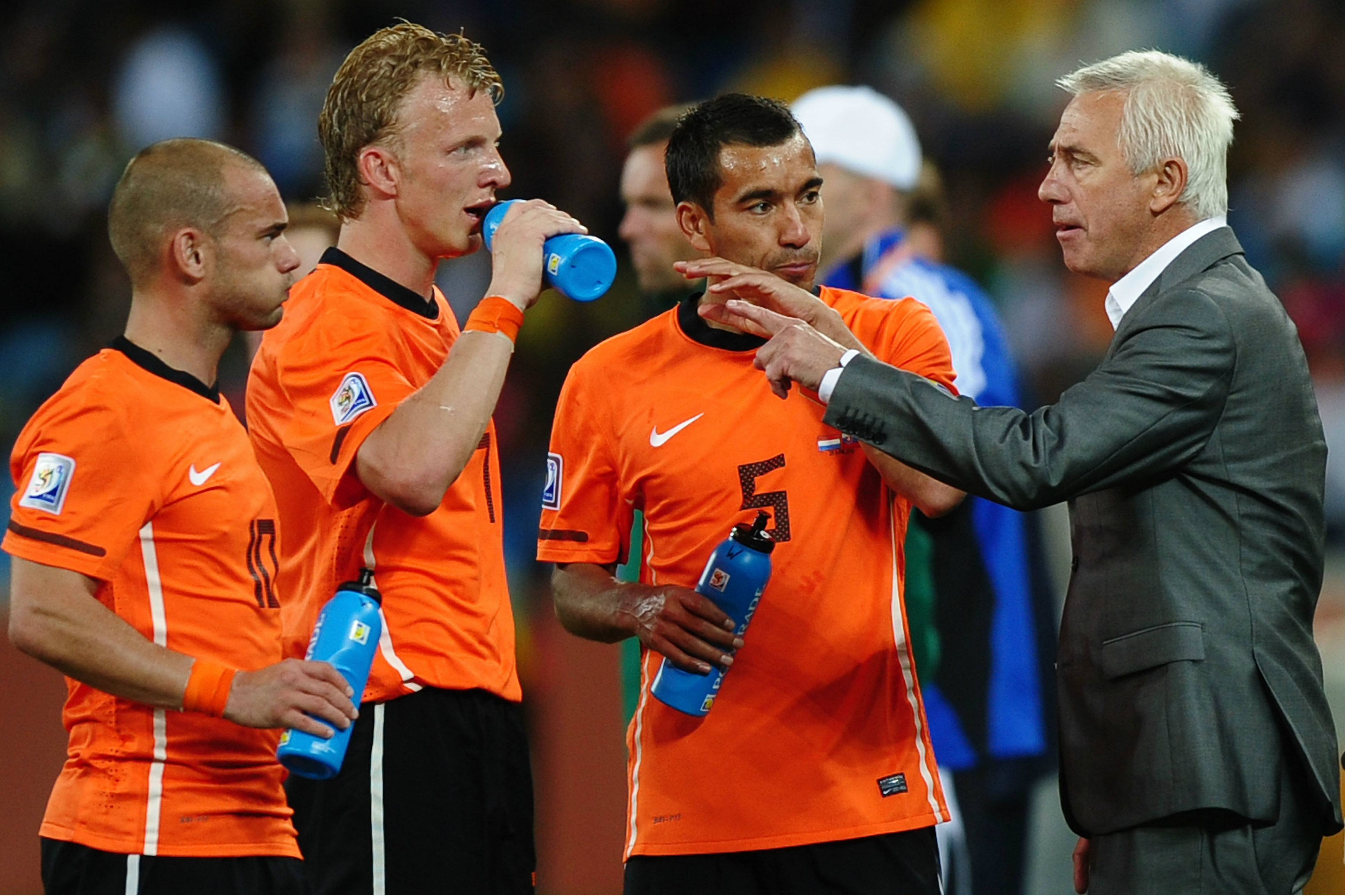Flexibility will be the hallmark of new Caltex Socceroos boss Bert van Marwijk as he ramps up his preparations for his first games in charge of Australia next month.
Van Marwijk has just seven weeks before he gets his first test as the Australian coach, with back-to-back friendlies against Norway and Colombia in Europe.
Speaking on Fox Sports’ The A-League Hour on Monday night, the former Netherlands and Saudi Arabia mentor admitted every session will be crucial as the players try to learn the way he wants them to play.
He said while it’s important to have a philosophy you stick to, there must always be a degree of flexibility.
“Players must understand how you want to play and it must also fit to the players. They must be capable of doing what you want,” van Marwijk said on Fox Sports.
“The best situation is that it also fits the coach. I like to be a little bit flexible. I’m not a coach who says we can play four, five, six systems.
“It’s very difficult to let a team play in a certain way that they trust each other and know what to do. But within the way of playing you must be flexible. That’s easy to say but in practice it’s very difficult.
“That costs time. But I realise we don’t have the time. Now, with seven weeks to watch all the players and to play the two games, we can hardly train. So the real preparation starts in May when we can really train.”

Van Marwijk said the Caltex Socceroos’ testing road to qualify for the FIFA World Cup showed there is a strong mentality within Australian players.
As manager of Saudi Arabia – who played Australia twice in qualifying - van Marwijk analysed the Caltex Socceroos squad closely and was impressed by many facets of their game.
“When you see them on the pitch they give you the feeling they like to play football,” the Dutchman said.
“I knew the mentality is very strong and you have a great sports culture. They are physically strong and have the right mentality.
“The other things that are important in football are speed and creativity. I think you [Australia] can play football. The important thing for me is to create a really good team.
“My experience at the World Cup in 2010 and 2002 with Feyenoord, when we won the UEFA Cup, is that we didn’t have the best players, but we had the best team.”
